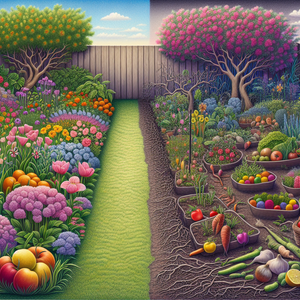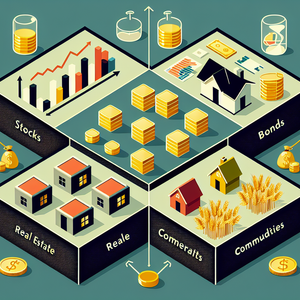From Architecture to Art: The Role of Glass in Denver's Urban Landscape

The use of glass in architecture is more than a trend; it is a transformative practice that redefines the way we experience spaces. In Denver, several architectural firms have embraced glass as a primary material, creating structures that are not only visually stunning but also environmentally friendly. One of the most notable examples is the Denver Art Museum, which features a striking glass and titanium design. The incorporation of large glass panels allows for natural light to flood the interiors, enhancing the visitor experience while reducing the need for artificial lighting. The Denver Art Museum's glass design also serves an artistic purpose, as it reflects the dynamic environment of the city, blending seamlessly with the surrounding landscape. Furthermore, its innovative use of glass draws visitors in, creating a welcoming atmosphere that encourages exploration and engagement with the art within.
Innovative Designs and Sustainability
Glass companies in Denver are also at the forefront of sustainable architecture. Many local firms are utilizing advanced technologies to create energy-efficient glass products. A notable example is the National Renewable Energy Laboratory (NREL) in Golden, Colorado, just outside Denver. This facility employs high-performance glass that minimizes energy loss and maximizes natural light. By incorporating features such as low-emissivity coatings and triple-glazing, these products significantly reduce heating and cooling costs, demonstrating that aesthetic appeal can go hand-in-hand with environmental responsibility. Additionally, companies like Glass Innovations, Denver Glass, and Apex Glass specialize in creating custom glass solutions that enhance energy efficiency and sustainability in buildings. These firms are dedicated to developing innovative glass technologies that meet the evolving needs of the architectural landscape, providing both aesthetic and functional benefits.
Iconic Buildings Shaping the Skyline
As Denver continues to evolve, several buildings have become symbols of the city’s architectural innovation. The Colorado Convention Center, with its impressive glass façade, is not only a hub for events but also a landmark recognized for its modern design. The use of glass in the convention center allows for panoramic views of the Rocky Mountains, creating a seamless connection between indoor and outdoor environments. This connection is vital for enhancing the visitor experience, making the convention center a popular destination for both locals and tourists. Similarly, the One Denver Plaza, often referred to as the 'glass box,' showcases how transparency in architecture can foster openness and community engagement. Its minimalist glass design not only emphasizes the beauty of the surrounding area but also invites interaction from pedestrians and passersby. This building exemplifies how glass can create inviting urban spaces that encourage social interaction, thereby enriching the community.
The Impact of Glass on Urban Aesthetics
The aesthetic impact of glass in Denver’s architecture extends beyond individual buildings; it influences the overall urban landscape. Glass creates reflections that interact with natural light, changing the appearance of buildings throughout the day and enhancing the beauty of the city. As urban planners and architects seek to create more engaging public spaces, the incorporation of glass elements—such as transparent walkways or glass-enclosed parks—encourages interaction and movement, fostering a vibrant urban atmosphere. An example of this is the Union Station redevelopment, where glass elements are utilized to create an inviting and modern transportation hub. The blend of historic architecture with contemporary glass structures revitalizes the area, making it a focal point for social gatherings, events, and commerce.
In Denver, glass is not merely a building material; it is a vital component of the city’s architectural narrative. From iconic structures that define the skyline to sustainable designs that prioritize environmental consciousness, the role of glass in shaping the urban landscape is both profound and multifaceted. As the city continues to grow and evolve, the collaboration between architects and glass companies will undoubtedly lead to further innovation, ensuring that Denver remains a beacon of modern architectural excellence. Whether you are an architect, a city planner, or simply a resident, understanding the impact of glass on Denver’s architecture offers a fresh perspective on the city’s identity and its commitment to a sustainable future. The synergy between artistic expression and functional design is exemplified in the use of glass, making it a crucial element in Denver’s ongoing journey toward a more modern and vibrant urban landscape.
Architectural Glass Design Specialist
Glass Innovations, Denver Glass, architectural firms specializing in sustainable design
Core Responsibilities
Collaborate with architects to integrate glass solutions into building designs, ensuring aesthetic appeal and structural integrity.
Create detailed specifications for glass types, treatments, and installations based on project requirements.
Conduct site assessments to evaluate the feasibility of glass applications in various architectural contexts.
Required Skills
Proficiency in CAD software and a strong understanding of glass properties and fabrication techniques.
Knowledge of sustainability practices and energy-efficient glass technologies.
Experience with building codes and standards related to glass applications.
Building Envelope Consultant
Consulting firms, architectural firms, construction companies focused on commercial buildings
Core Responsibilities
Assess existing building envelopes and recommend improvements to enhance energy efficiency and occupant comfort.
Develop performance specifications for glass and other materials used in the building envelope.
Collaborate with construction teams to oversee the installation and quality assurance of glass systems.
Required Skills
Strong understanding of thermal dynamics, moisture control, and structural integrity concerning glass and cladding systems.
Certification in building envelope design (e.g., CBCP, BEC).
Excellent analytical and problem-solving capabilities.
Glass Fabrication Technician
Apex Glass, local glass manufacturing facilities, custom fabrication shops
Core Responsibilities
Operate machinery to cut, shape, and finish glass products according to detailed specifications.
Conduct quality control inspections to ensure finished products meet industry standards and client requirements.
Collaborate with designers to develop custom glass solutions for architectural projects.
Required Skills
Technical skills in glass cutting and fabrication processes, including knowledge of glass tempering and laminating.
Ability to read and interpret technical drawings and blueprints.
Attention to detail and adherence to safety protocols in a manufacturing environment.
Urban Planner with a Focus on Sustainable Design
City planning departments, urban development firms, non-profits focused on sustainable urban initiatives
Core Responsibilities
Develop urban design plans that incorporate glass and other transparent materials to enhance public spaces and community interaction.
Analyze zoning regulations and building codes to promote sustainable architectural practices.
Engage with community stakeholders to assess the impacts of glass-integrated designs on the urban environment.
Required Skills
Expertise in urban design principles, sustainability, and community engagement.
Proficiency in GIS software and urban planning tools.
Strong communication and project management skills.
Sustainability Consultant for Architecture
Sustainability consulting firms, architectural firms, corporate sustainability departments
Core Responsibilities
Advise architectural firms on the integration of sustainable glass technologies and materials that reduce energy consumption.
Conduct lifecycle assessments of building materials, emphasizing the benefits of high-performance glass.
Stay updated on industry trends and legislation related to green building standards and certifications (e.g., LEED).
Required Skills
In-depth knowledge of green building practices, particularly in relation to glass and glazing systems.
Certification in sustainability (e.g., LEED AP, WELL AP) is preferred.
Strong analytical skills and the ability to present findings and recommendations to diverse audiences.


